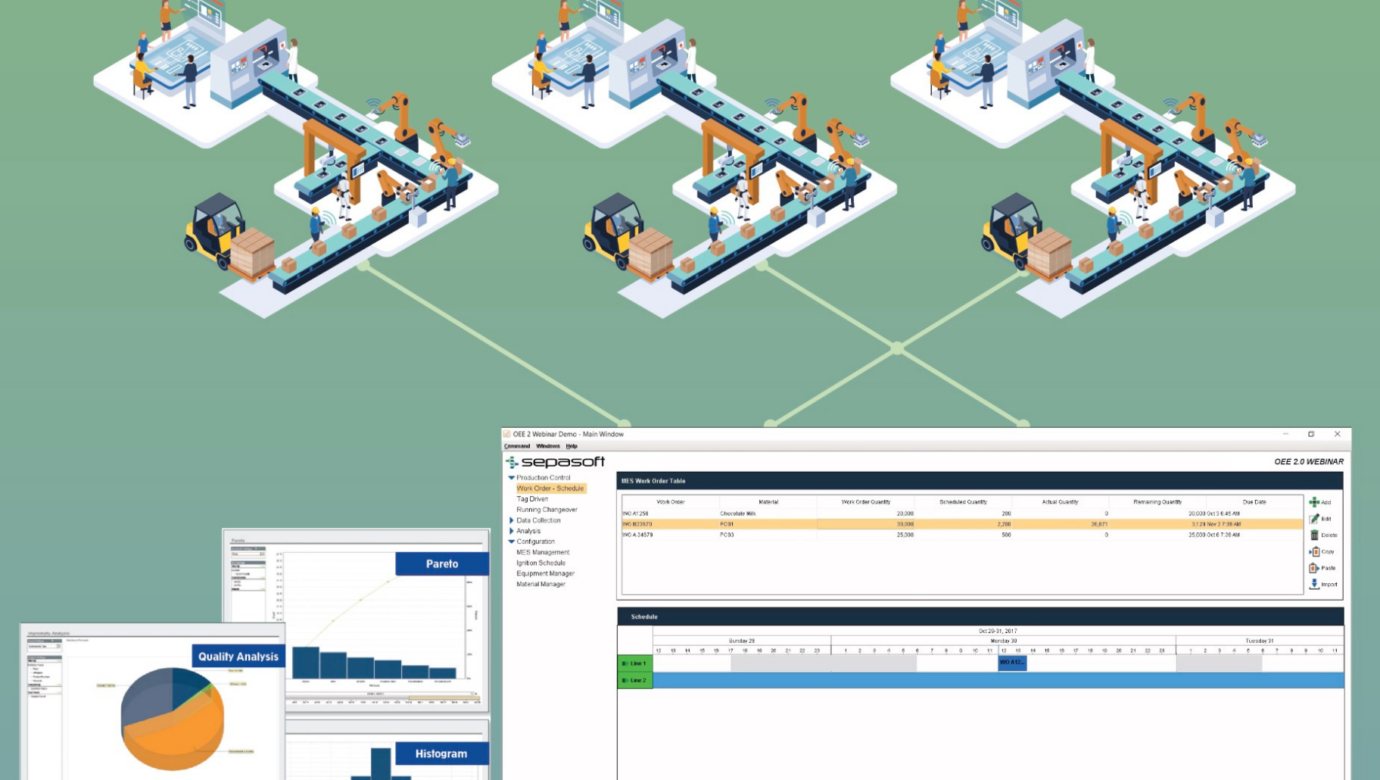Demystifying Manufacturing Execution Systems (MES)
In today’s fast-paced manufacturing world, staying competitive means optimizing processes, enhancing quality control, and ensuring efficient production. Manufacturing Execution Systems (MES) are essential tools that bridge the gap between enterprise-level planning and plant-floor operations. By offering real-time data and comprehensive oversight, MES enables manufacturers to streamline their workflows, reduce costs, and improve overall efficiency.
What Is a Manufacturing Execution System?
A Manufacturing Execution System (MES) is a dynamic software solution designed to monitor, track, document, and control the manufacturing process throughout its lifecycle. Acting as a functional layer between Enterprise Resource Planning (ERP) systems and process control systems, MES provides decision-makers with real-time insights to optimize production and improve efficiency.
With MES, manufacturers can benefit from:
- Improved quality control by identifying and addressing issues in real time.
- Increased uptime through better scheduling and resource management.
- Lower costs by reducing excess inventory and streamlining production workflows.
By delivering actionable insights derived from real-time data and maintaining complete process transparency across all stages of production, MES empowers manufacturers to make informed decisions, optimize workflows, and address inefficiencies proactively. This level of oversight not only enhances operational performance but also fosters innovation and agility, enabling manufacturers to adapt quickly to market changes and maintain a competitive edge in today’s fast-paced industrial landscape.
Applications of MES in Various Industries
MES systems are widely used across discrete, batch, and continuous manufacturing industries due to their adaptability and ability to streamline complex operations. Their versatility makes them particularly valuable in sectors such as:
- Semiconductor and Electronics: MES ensures precision and efficiency in highly intricate production environments. By providing real-time monitoring and process control, it helps maintain the stringent standards required for delicate components and assemblies.
- Automotive and Aerospace: These industries rely on MES to manage intricate assembly lines, track parts and processes, and ensure compliance with strict safety and performance regulations. MES also helps integrate advanced manufacturing technologies like robotics and additive manufacturing into production workflows.
- Pharmaceuticals and Food & Beverage: MES supports traceability and stringent quality control to meet regulatory requirements such as FDA or HACCP standards. It ensures that every batch is recorded and monitored, reducing the risk of recalls and ensuring product safety and consistency.
- Medical Devices and Biotechnology: In highly sensitive production processes, MES facilitates accuracy and compliance with global standards. It enables manufacturers to track every component and step in the production cycle, ensuring the highest quality and adherence to rigorous regulations.
For regulated industries, MES is indispensable for maintaining compliance and accountability. It provides comprehensive traceability throughout the production cycle, ensuring that every product meets the required standards while providing a clear audit trail for inspections and certifications.
How MES Systems Are Used
MES is more than just a monitoring tool; it is a cornerstone for decision-making and process optimization in modern manufacturing. By providing actionable insights and fostering operational transparency, MES empowers managers and supervisors to make informed decisions that drive efficiency and productivity. Here’s how MES actively supports manufacturing operations:
- Implementing Production Plans: MES translates high-level strategic goals into actionable workflows on the plant floor. It ensures that production schedules are executed seamlessly, aligning resources, equipment, and personnel to meet deadlines and maintain consistency.
- Monitoring Efficiency and Key Metrics: MES provides real-time visibility into critical performance metrics such as cycle times, yield rates, and equipment utilization. This allows managers to identify inefficiencies and bottlenecks, ensuring that operations run smoothly and productively.
- Detecting and Resolving Issues Early: With its ability to monitor processes in real time, MES can quickly detect deviations, quality concerns, or equipment malfunctions. By addressing these issues proactively, MES helps manufacturers avoid costly delays, minimize waste, and reduce the risk of production errors.
The growing adoption of MES is fueled by several factors, including the rise of industrial automation, which demands seamless integration of systems and processes. Increasing regulatory requirements across industries also make MES indispensable for maintaining compliance, traceability, and accountability. Furthermore, the decreasing cost of MES solutions has made this powerful technology more accessible to manufacturers of all sizes.
As a result, MES has become essential for manufacturers striving to remain agile and competitive in today’s fast-paced market. By enabling smarter decision-making and process optimization, MES helps businesses not only meet current challenges but also seize new opportunities for growth and innovation.
Benefits of Implementing MES
MES provides a wealth of benefits that transform manufacturing operations, ensuring businesses can achieve higher productivity, improved quality, and reduced costs. Some key advantages include:
- Real-Time Insights: MES delivers actionable data to optimize production and reduce inefficiencies.
- Improved Quality Control: By identifying defects immediately, MES minimizes waste and rework, ensuring consistent product quality.
- Decreased Downtime: Realistic production schedules, integrated with maintenance planning, help maximize asset utilization and minimize interruptions.
- Enhanced Inventory Management: MES tracks materials and production output in real time, reducing unnecessary inventory and associated costs.
Additionally, MES digitizes the shop floor, eliminating paper-based processes and reducing the likelihood of human error. The system also integrates seamlessly with ERP solutions, enabling better collaboration across departments and ensuring accurate data for decision-making.
How the Digital Foundry Can Help
At the Digital Foundry, we specialize in helping manufacturers implement and maximize the benefits of technology like Manufacturing Execution Systems. Whether you’re looking to integrate MES into your operations or enhance your team’s understanding of this powerful technology, our experts can guide you every step of the way.
From tailored assessments to hands-on training, we’re here to ensure your manufacturing processes are optimized for success. Contact us today to learn how MES can revolutionize your operations and drive long-term growth.


